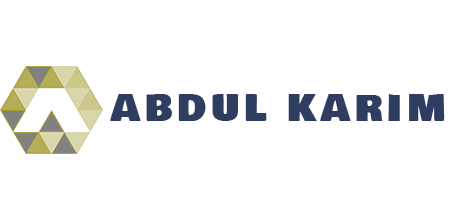Abdul karim Ali
Cell 23
Kondengui Central Prison,
Yaoundé, La Republic du Cameroun.
March 24th 2023
The ability to move a party or parties in an intended direction (power) is referred to as ‘Leverage’
in mediation. It is a paradox that though leverage is the hammer used in nailing mediation,
mediators seem to remain relatively powerless throughout the process. The point to note with full
attention is that the extent of the mediator’s power totally depends on the parties, especially the
oppressed, whose acceptance of a mediation depends on its likely bond (potential power) of
producing a solution acceptable by both sides. Mediation is welcomed to the extent that the
mediator has leverage over both parties. Contrary to the notion that a mediator’s relationship with
a party (oppressor) is long-standing and may be good, compromises the process for the oppressor,
theorists propound that the mediator’s relationship with the oppressor becomes a powerful exploit
depending on the commitment and efforts of the oppressed. Mediators are never tired. Instead,
they must sell their services based on their usefulness and leverage. Mediator has six (6) sources
of leverage: persuasion, extraction, termination, limitation, deprivation, and gratification. The
following paragraphs will discuss these sources in light of the eminent mediation between
Southern Cameroons and the Republic of Cameroun.
Primarily, persuasion is the ability to portray an alternative to the continual conflict as a better
option. This is a purely communication exercise mediators must perform. They must be able to
argue for an attractive conciliation, which is more acceptable than continued conflict. Southern
Cameroonian leadership understands this, and she is ready to protect her children until the return
of Jesus (on whom Peace). Persuasion is independent of other resources but appears to be the most
relevant leverage source.
Secondly, mediation isn’t welcome until it can extract a proposal from one party that is considered
favorable by the other. Extraction is the ability to extract and produce attractive positions from
each party. This is a very problematic source, yet it remains the basis of all mediations. The crucial
moment comes when the mediator asks a party’s permission to try for the other’s agreement to a
proposal. Again, all of this depends on the party’s willingness to embrace alternatives to the
continuing war. By committing to the already two mediation processes, the Swiss and the Canadian
Led processes, Southern Cameroons has demonstrated her willingness to talk and not just fight.
On the other hand, by playing pranks and insulting mediation processes (the Swiss and Canadian
processes), the Republic of Cameroun is demonstrating its desire to fight than to talk. The mediator
should see this trend.
Thirdly, ‘termination’ is the mediator’s ability to withdraw and leave the parties to their devices.
Again, the impact of the withdrawal depends on the disputing parties. If they don’t feel a hurting
stalemate, they may be happy to see the mediator depart, hoping for victory in the war, over the
offer. However, if the mediator needs a solution more than the parties do, a credible threat of
withdrawal would be difficult to advance. The oppressed have the knife and the yam.
The fourth source of leverage is ‘limitation.’ Limitation is the ability to block off any other venues
for mediation or any other alternatives to mediation (domination, withdrawal, capitulation, etc.)
This was the case in the South African-Angolan conflict in the 1980s. The parties realized that
renewed war wasn’t an alternative. The mediator must demonstrate that her mediation is the only
plausible way out of the conflict. In 1999 the Ethiopians and Eritreans thought renewing their
conflict was the way to victory, but a year later, they realized the contrary. Multiple mediators may
promote bidding and ineffectiveness unless their efforts are firmly coordinated. As in the case of
the Cameroons, this source of leverage appears to be most effective when the oppressor insists on
conquering the oppressed despite a visible/felt plateau and precipice (hurting stalemate and time
limit).
The remaining sources, deprivation and gratification constitute the ability to manipulate. The
mediator at this level considers manipulation as a mode of mediation. The point here is to worsen
the dilemma of parties rejecting mediation and to keep them in search of a solution. This involves
verbal condemnation, to more tangible activities such as the withdrawal of food aid, military
hardware supplies, etc. Mediators may shift weight in other to prevent a party from winning the
war, probably because such a victory may produce an undesirable outcome. The US demonstrated
this when she shipped arms to Israel and Morocco (which makes them more or less a party to the
conflict). More so, the US made down payments to South Africa with the goal of improving
relationships with the parties in conflict. The Soviet Union threatened same during the IndoPakistan war in favor of Pakistan, and England threatened to shift weights against the Patriotic
Front of Rhodesia. It is worth noting that threats are only effective when they are believable. United
Nations instruments have also been used to placate or impend on parties failing to abide to
mediation.
The last source is ‘Side Payment,’ The subject to which the term leverage is usually applied. As
shifting weights may affect the conflict, side payment may be needed to enhance the outcome for
one or more parties. Post-conflict guaranteed aid packages are such down payments, for example.
What then do these say about ‘powerful’ and ‘powerless’ mediators? Basically, it’s a common
distinction between ‘interested’ and uninterested ones. Of all the sources of leverage, persuasion is
the most crucial. Mediators must be able to reorient parties to realize that they can’t solve the
problem by themselves. The need to solve the problem is the control to the mediator’s leverage.
The parties must see a need to engage in a mediation process to solve the conflict.
In sum, Southern Cameroons, as the first democracy of Africa, a teacher of justice and a student
of peace, recognizes the need to end the war brought on her. She accepts the peace process as a
needful measure, a better alternative, and a reasonable way to ensure an agreeable outcome to the
dispute with the Republic of Cameroun. However, Southern Cameroons won’t undertake this
exercise from a position of fear or weakness.
Truth is on our side; we are on the side of justice as we accept mediation. The onus of timely and
accurate deployment of leverage is on Canada and the friends of the mediation process. Southern
Cameroons is sitting and waiting on the table while incursions and raids abound on her children. I
remind the world that neutrality amid injustice is the worse form of injustice. I remind the
international community and Canada in particular that they cannot and should not be partial with
an oppressor to deprive the oppressed of justice.
God bless Southern Cameroons. God bless the Good World.


